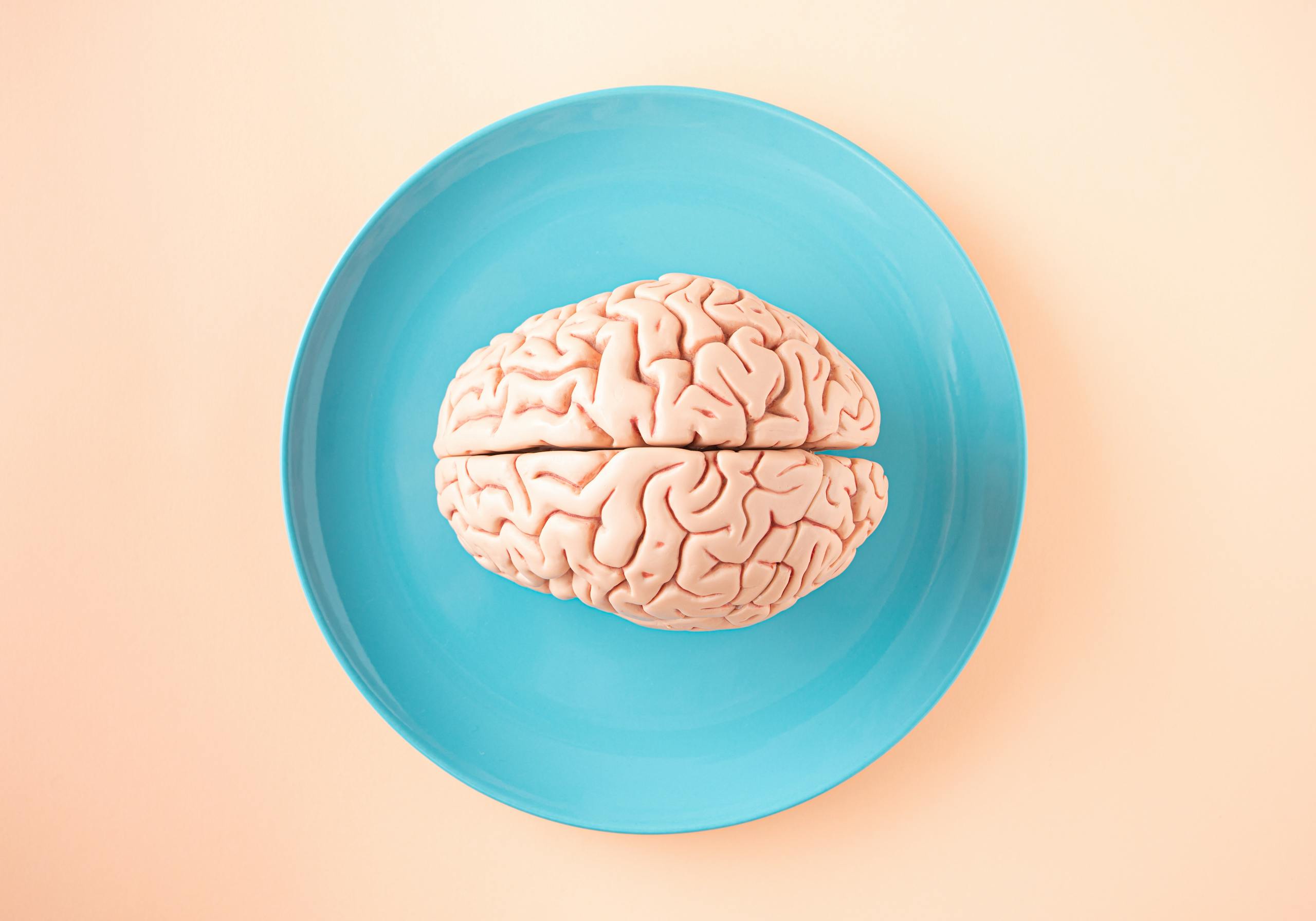How to Maintain Mental Sharpness Into Your 60s and Beyond
What if you could future-proof your brain and stay just as mentally sharp in your 60s, 70s and 80s as you were in your 30s? waking up every morning feeling mentally energized, with crystal-clear memory and razor-sharp focus.
The truth is while aging is inevitable, cognitive decline doesn’t have to be. Many people assume that forgetfulness, slower thinking, and mental fog are normal parts of getting older. But according to science, science tells us otherwise? In fact your brain has the remarkable ability to adapt, grow, and stay strong if given the right tools.
Recent research has uncovered powerful strategies to keep your mind strong, focused, and alert. From brain-boosting foods to simple daily habits.
So in this article we’re going to be diving into the latest neuroscience-backed strategies, techniques, lifestyle habits, and cutting-edge innovations that can help keep your brain firing on all cylinders while keeping your mind sharp for years to come.
So whether you’re looking to boost memory, improve focus and concentration or prevent age-related cognitive decline, these practical tips and tools will empower you to take charge of your cognitive health, maintain and even enhance—your mental agility well into your golden years!
Let’s dive in and explore these science-backed ways to keep your brain in peak condition! Each section will not only outline the importance of key habits but also explain the science behind them and how you can start applying them today.
How to maintain mental sharpness into your 60s and beyond.
1. Feed Your Brain the Right Nutrients
Why Diet Matters for Cognitive Health
Your brain is an energy-hungry organ, using around 20% of your daily calorie intake. The nutrients you consume affect memory, focus, and the ability to process information.
Scientific studies have shown that people who eat a diet rich in omega-3 fatty acids, antioxidants, and vitamins have a significantly lower risk of cognitive decline.
Your brain is like an engine, and the fuel you provide it determines its performance. Certain foods contain powerful nutrients that support cognitive function and reduce inflammation.
- Omega-3 Fatty Acids – Found in salmon, flaxseeds, and walnuts, omega-3s help protect brain cells and improve memory.
- Antioxidant-Rich Foods – Berries, dark chocolate, and leafy greens fight oxidative stress that can damage brain cells.
- Brain-Boosting Spices – Turmeric, cinnamon, and rosemary have anti-inflammatory properties that support mental clarity.
- Stay Hydrated – Dehydration can lead to brain fog, fatigue, and memory issues. Aim for at least 8 glasses of water daily.
Pro Tip: Try the Mediterranean diet, which has been linked to better cognitive function and a lower risk of Alzheimer’s disease.
Your brain is like a high-performance machine—it needs the right fuel to function at its best. Certain foods are scientifically proven to boost cognitive function, enhance memory, and slow down brain aging.
Best Brain-Boosting Foods:
Best Foods for Brain Health:
- Fatty fish (salmon, mackerel, sardines) – rich in omega-3 fatty acids that support brain cell structure and function.
- Berries (blueberries, strawberries) – loaded with antioxidants that protect the brain from oxidative stress.
- Leafy greens (spinach, kale, broccoli) – packed with brain-boosting vitamins like folate and vitamin K.
- Nuts and seeds (walnuts, flaxseeds, almonds) – excellent sources of healthy fats and vitamin E, which supports cognitive health.
- Dark chocolate (70% cacao or higher) – contains flavonoids that improve memory and mental sharpness.
What to Avoid:
On the flip side, diets high in processed foods, refined sugars, and unhealthy fats contribute to inflammation and brain fog. A study published in Neurology found that people who consume high amounts of trans fats are more likely to develop dementia.
- Processed foods high in sugar and trans fats can contribute to inflammation and accelerate cognitive decline.
- Excessive alcohol and smoking can damage brain cells and lead to memory problems and impair cognitive function
- Too much caffeine, which can increase anxiety and disrupt sleep.
2. Keep Your Mind Active, Challenged and Engaged
Why Mental Stimulation Is Essential
The phrase “use it or lose it” applies to your brain. Cognitive decline happens when neural connections weaken due to lack of use.
However, engaging in mentally challenging activities strengthens these connections and even encourages new neural pathways to form—a process known as neuroplasticity.
Just like your muscles, your brain needs regular exercise to stay strong. Mental stimulation can help prevent cognitive decline and keep you sharp.
The Best Ways to Keep Your Mind Active
- Lifelong Learning – Read books, take online courses, or learn a new language.
- Puzzles and Brain Games – Engage in crossword puzzles, Sudoku, chess, or memory games to challenge your mind.
- Creative Hobbies – Painting, playing a musical instrument, or writing can stimulate different areas of the brain and enhance cognitive function.
- Engage in Social Conversations: Conversations that require critical thinking and debate activate brain regions responsible for memory and reasoning.
Pro Tip: Set a goal to learn one new skill every year to keep your brain actively engaged!
Your brain thrives on learning and mental stimulation. Just like muscles weaken without exercise, your brain can deteriorate if it’s not challenged regularly.
How to Keep Your Brain Engaged:
How to Exercise Your Brain:
✔ Lifelong Learning: Read books, take up new hobbies, or enroll in online courses. Learning something new strengthens neural connections.
✔ Puzzles and Games: Sudoku, crossword puzzles, chess, and brain-training apps can improve cognitive function.
✔ Play an Instrument or Learn a New Language: Both activities engage multiple areas of the brain and enhance memory and problem-solving skills.
✔ Social Interaction: Engaging in meaningful conversations, joining clubs, and maintaining friendships help keep your brain sharp and combat loneliness, which is linked to cognitive decline
✔Learn a New Skill: Playing an instrument or speaking a new language improves neural connections.
Pro Tip: A 2018 study in the Journal of the American Medical Association (JAMA) found that older adults who engaged in lifelong learning and problem-solving activities had a 29% lower risk of cognitive decline.
3. Move Your Body and Stay Physically Active
Why Exercise is a Brain Booster
Exercise isn’t just good for the heart—it enhances memory, learning ability, and mental resilience. When you exercise, your body releases BDNF (Brain-Derived Neurotrophic Factor), a protein that supports brain cell growth.
Physical exercise isn’t just good for your body—it’s essential for brain health, too! Regular movement increases blood flow to the brain, boosts oxygen levels, and enhances neuroplasticity.
Best Exercises for Brain Health:
1. Aerobic or Cardio Exercise – Activities like brisk walking, jogging, swimming, or cycling improves circulation and boosts and promote brain function and cell growth.
2. Mind-Body Exercises – Exercises like pilates and tai chi combine movement with mindfulness, reduces stress and enhances focus, memory and cognitive function.
3. Strength Training – Lifting weights or doing resistance exercises supports overall cognitive function. It helps maintain balance, coordination, and brain-body connection, and mental clarity.
Pro Tip: The Mayo Clinic found that seniors who engage in 150 minutes of exercise per week have a 40% lower risk of cognitive decline. Aim for at least 150 minutes of moderate exercise per week to keep both your body and mind in peak condition.
4. Prioritize Quality Sleep
How Sleep Affects the Brain
Sleep isn’t just about rest—it’s when your brain repairs itself, clears toxins, restores cognitive function and consolidates memories. Poor sleep or chronic sleep deprivation is directly linked to memory issues and cognitive decline. Which increases the risk of:
- Memory loss
- Impaired decision-making
- Increased risk of Alzheimer’s disease
A good night’s sleep is one of the most powerful brain boosters. Getting a good night sleep is one of the easiest and most effective ways to protect brain health as you age.
Poor sleep has been linked to memory loss, brain fog, and an increased risk of Alzheimer’s. Prioritizing rest is one of the best ways to keep your brain young!
How to Improve Sleep for Quality for Brain Health:
Tips for Better Sleep:
- Maintain a Sleep Schedule – Go to bed and wake up at the same time every day. Stick to a regular sleep schedule. Aim for 6-8 hours of sleep per night.
- Limit Blue Light Exposure – Reduce screen time before bed to promote melatonin production and from disrupting your sleep cycle . Avoid screens and blue light from TVs, phones, and computers at least one hour before bed.
- Create a Relaxing Bedtime Environment – Creating a cool, dark, and quiet bedroom helps improve sleep quality.
- Create a Relaxing Bedtime/ Nighttime Routine – Practice creating a bedtime routine before you go to be like for example praying, meditating, reading, or engaging in some deep breathing exercises can help improve the quality of your sleep. It signals to your brain that it’s time to wind down.
- Avoid Late-Night Caffeine & Alcohol: These interfere with deep sleep cycles.
Research Insight: A Harvard study found that adults who regularly get less than six hours of sleep per night are at a 33% higher risk of cognitive impairment later in life.
5. Manage Stress and Protect Mental Well-being
How Chronic Stress Damages the Brain
When you experience prolonged stress, your body releases cortisol, a hormone that can shrink the hippocampus—the area responsible for memory. Chronic stress is linked to:
- Anxiety and depression
- Poor concentration
- Increased risk of dementia
Chronic stress can shrink the brain, impair memory, and increase the risk of cognitive decline. Learning how to manage stress effectively is crucial for long-term brain health.
How to Reduce Stress Effectively and Boost Mental Clarity:
1. Practice Meditation: Lowers cortisol levels and improves emotional resilience.
2. Stay Positive: Maintaining an optimistic and positive outlook has been linked to better brain function in older adults thus enhancing mental flexibility and problem-solving skills.
3. Engage in Relaxing Activities: Listening to music, going on nature walks or spending time in nature, or pursuing hobbies reduces stress and improves brain function and improves mental sharpness.
4. Stay Connected – Social interactions stimulate the brain and reduce the risk of cognitive decline.
5. Practice Deep Breathing – Helps reduce stress hormones that contribute to memory problems.
6. Laugh More – Laughter releases feel-good hormones that enhance brain function.
7. Practice Mindfulness: Like journaling can help clear mental clutter.
A 2020 study in the journal Neurology found that people who practiced regular stress management techniques had a 30% reduced risk of age-related memory decline.
6. Regular Health Checkups and Brain-Boosting Supplements
Why Medical Checkups Matter
Cognitive health is closely linked to heart health, blood pressure, and metabolic health. Conditions like high blood pressure, diabetes, and high cholesterol can increase the risk of dementia.
Key Actions for Brain Health
✔ Regular Health Screenings: Monitor blood sugar, cholesterol, and blood pressure levels to manage any underlying health.
✔ Stay Hydrated: Dehydration can cause brain fog and fatigue. Drink plenty of water daily! Even mild dehydration can impair focus and memory.
✔ Consider brain-supporting supplements:
- Omega-3 Fatty Acids – Protect brain function.
- Vitamin B12 – Essential for nerve function.
- Magnesium – Supports brain function, mental clarity and stress management.
Monitoring your overall health plays a vital role in maintaining cognitive function. Conditions like high blood pressure, diabetes, and high cholesterol can negatively impact brain health.
Final Thoughts:
Maintaining mental sharpness well into your 60s and beyond is not only possible—it’s within your control!
By nourishing your brain with the right foods, staying mentally and physically active, prioritizing sleep, and managing stress, you can enjoy lifelong cognitive health. Small, consistent changes today can lead to a sharper, stronger mind in the future.
Aging doesn’t have to mean losing your mental sharpness. By making small but powerful lifestyle changes today—nourishing your brain, staying active, managing stress, and prioritizing sleep—you can keep your mind strong, focused, and full of vitality well into your 60s, 70s, and beyond.
Your brain is an incredible organ that thrives on care and attention. The best part? It’s never too late to start! Implement these strategies now and enjoy a lifetime of mental clarity and peak cognitive performance.
So, what’s one brain-boosting habit you’ll start today? Let me know in the comments!
A sharp mind is a lifelong investment. The earlier you start adopting brain-healthy habits, the greater the benefits as you age.







